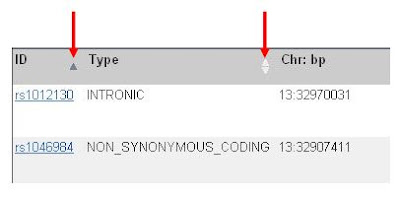Ensembl announces a workshop for developers that will take place at the Wellcome Trust Genome Campus, Hinxton, UK. The workshop runs in the week of the Genome Informatics conference, from Monday 13 September until midday Wednesday 15 September 2010, and will cover the same content as in previous years.
Ensembl developers will present sessions on how to create your own core database, including the loading of a genome assembly into a database and the running of simple analyses using the Ensembl genebuild pipeline.
As this workshop is aimed at developers, we will be exploring the underlying code-base of the Ensembl Software System. The workshop comprises presentations around Ensembl as well as practical sessions. We would like to point out that this is not a 'learning how to program in Perl' workshop.
For the successful completion of the workshop exercises, participants will be expected to have comprehensive experience in PERL programming and a background in object oriented programming techniques. Familiarity with Perl, a Unix/Linux environment, databases and structured query languages (MySQL) are needed to follow the workshop and the programming examples. Knowledge of the Ensembl core API is essential. The workshop is suitable for people who have access to small- to large scale compute resources, and who plan to run genome-wide analyses on large-scale data sets.
The workshop will be given by:
• Bronwen Aken (Ensembl Genome Annotation team)
• Jan-Hinnerk Vogel (Ensembl Genome Annotation team)
Additional presenters will attend depending on the number of participants registering.
At the end of this course, attendees will
• have a good understanding of Ensembl's annotation pipeline
• have hands-on experience with loading a genome assembly
• have hands-on experience with the annotation pipeline
There is no registration fee to attend this course for non-industry participants, but we ask you to register in advance because the number of attendees is limited by the size of the training venue.
Please note that the workshop runs before the conference, so don't forget to arrange additional accommodation for the workshop days.
The aim of the Ensembl Developers Workshop is to promote the academic use of the Ensembl Analysis and Ensembl pipeline system used by the Ensembl Genome Annotation Group.
To register your interest to attend, please send an email to Bert Overduin (bert@ebi.ac.uk), together with a brief outline of the relevance of this workshop to your work and your details.
The registration deadline for this workshop is August, 15th. Notification of places will be as soon as possible.
We will circulate an agenda amongst participants in due time.
 The Ensembl project has focused on vertebrate organisms for the past ten years. Since Jan 2009, a sister project has formed, Ensembl Genomes, extending analysis to invertebrates, protists, plants, fungi and bacteria.
The Ensembl project has focused on vertebrate organisms for the past ten years. Since Jan 2009, a sister project has formed, Ensembl Genomes, extending analysis to invertebrates, protists, plants, fungi and bacteria.




